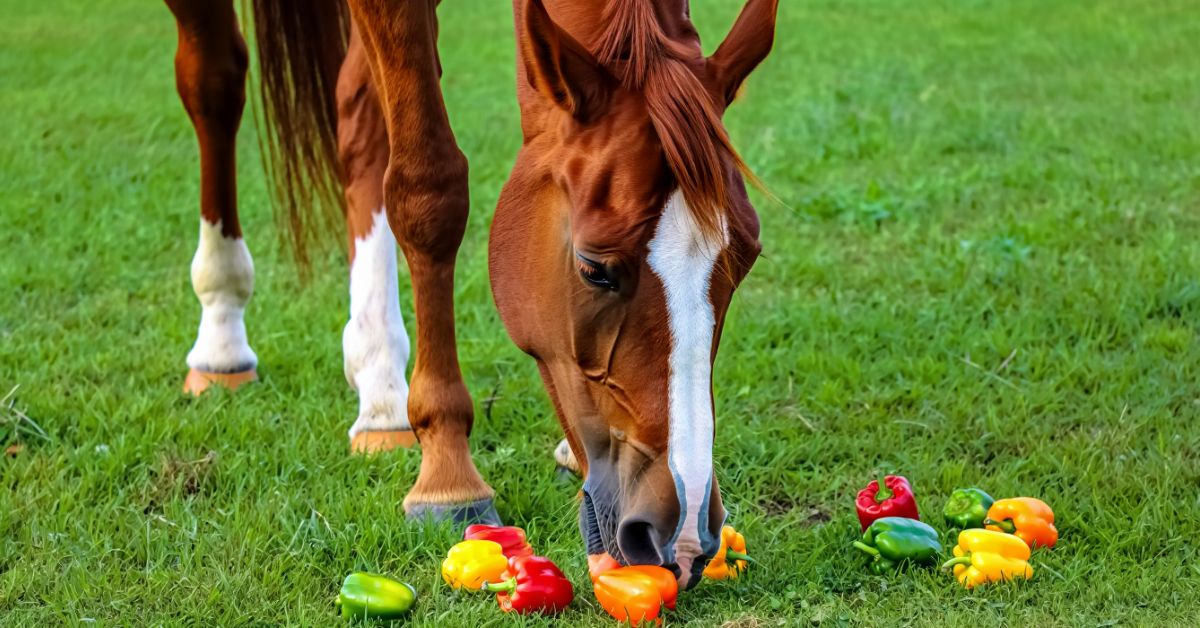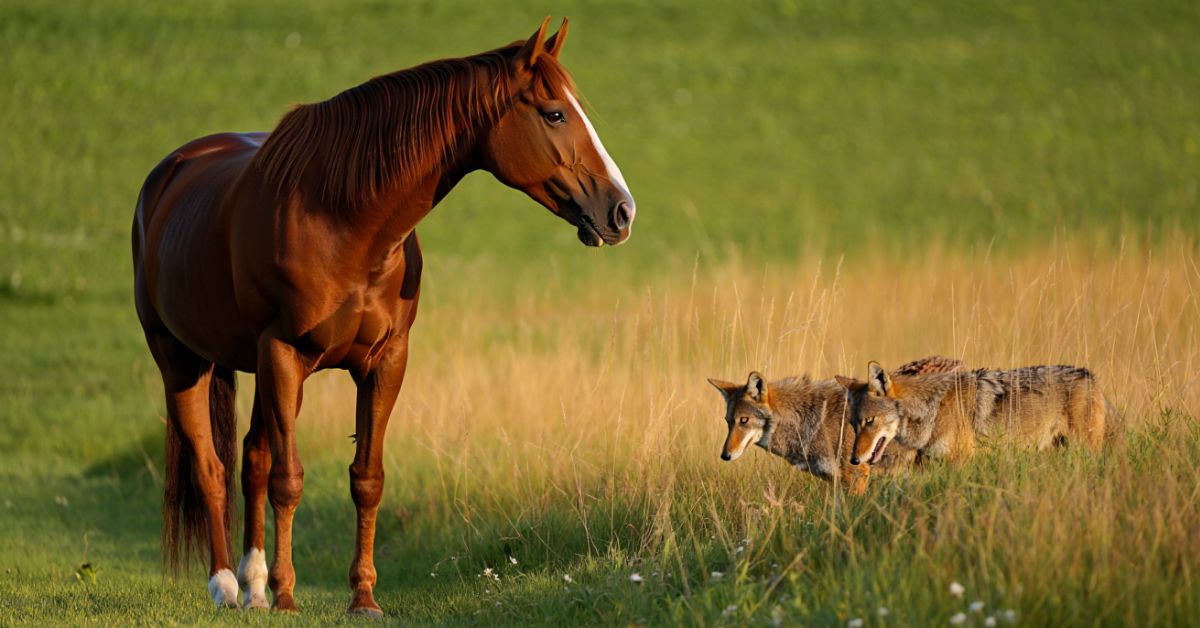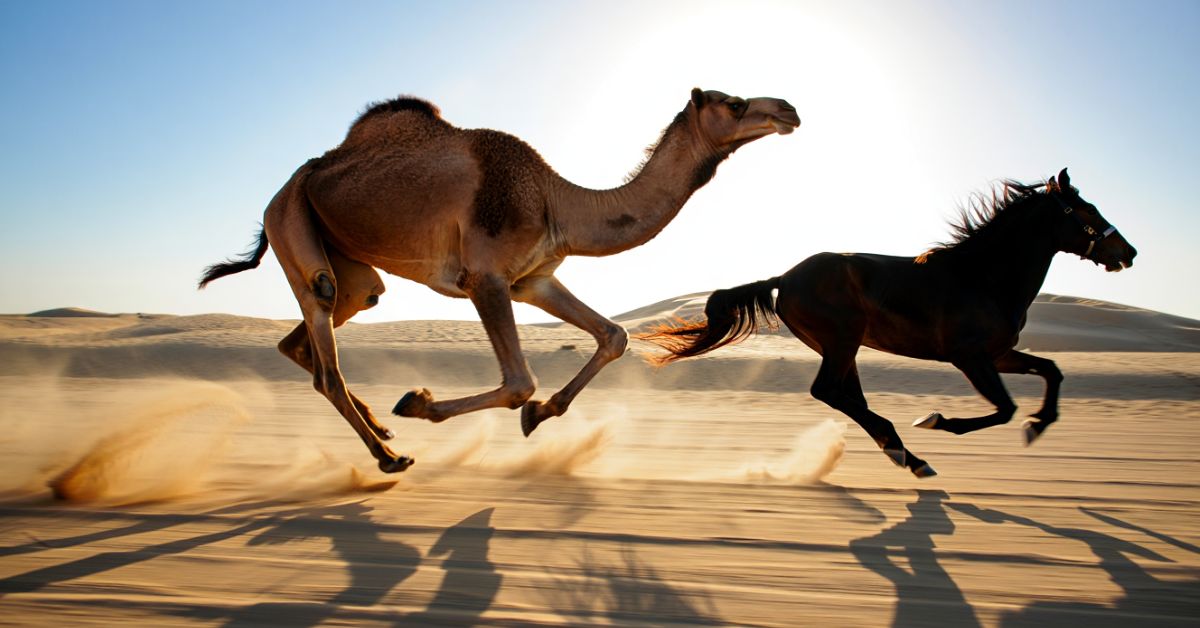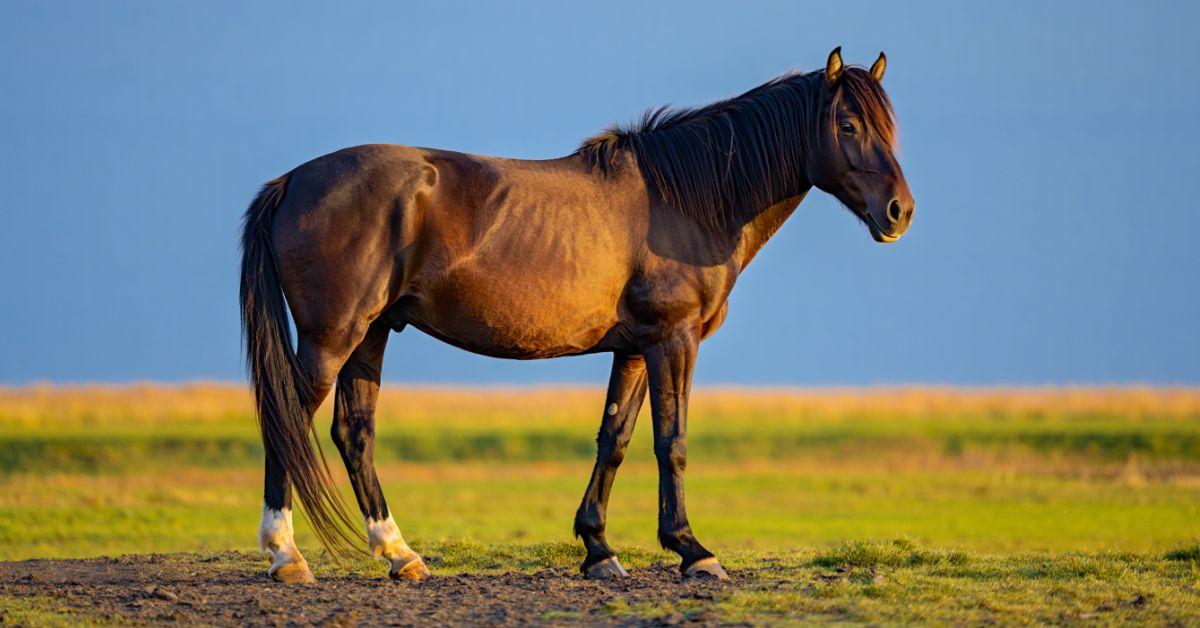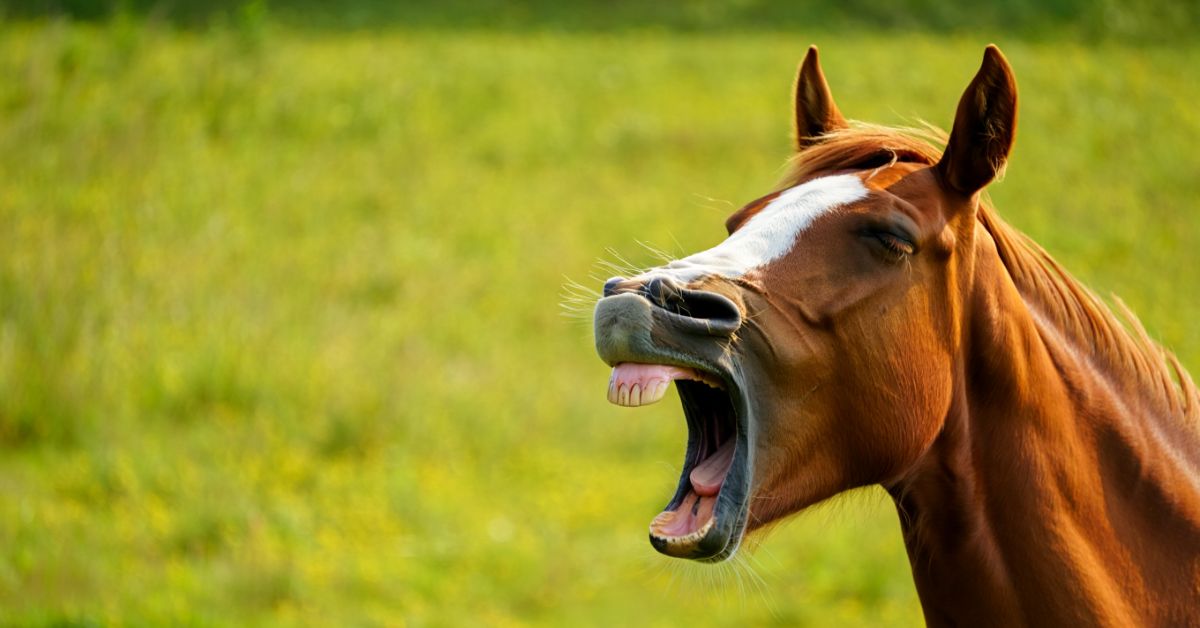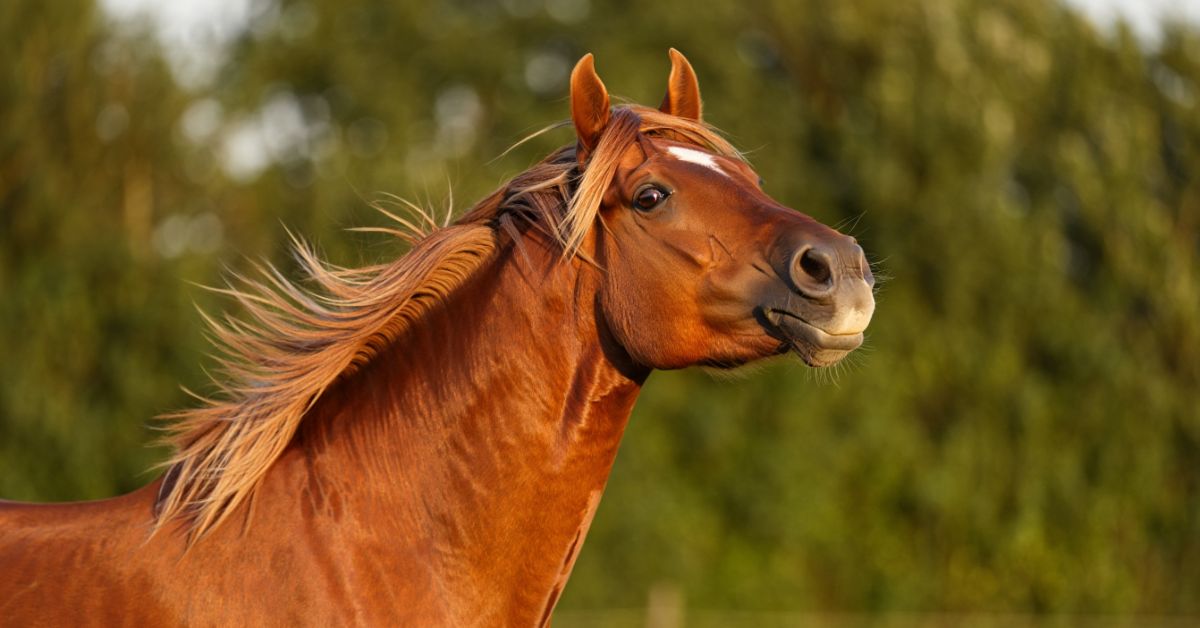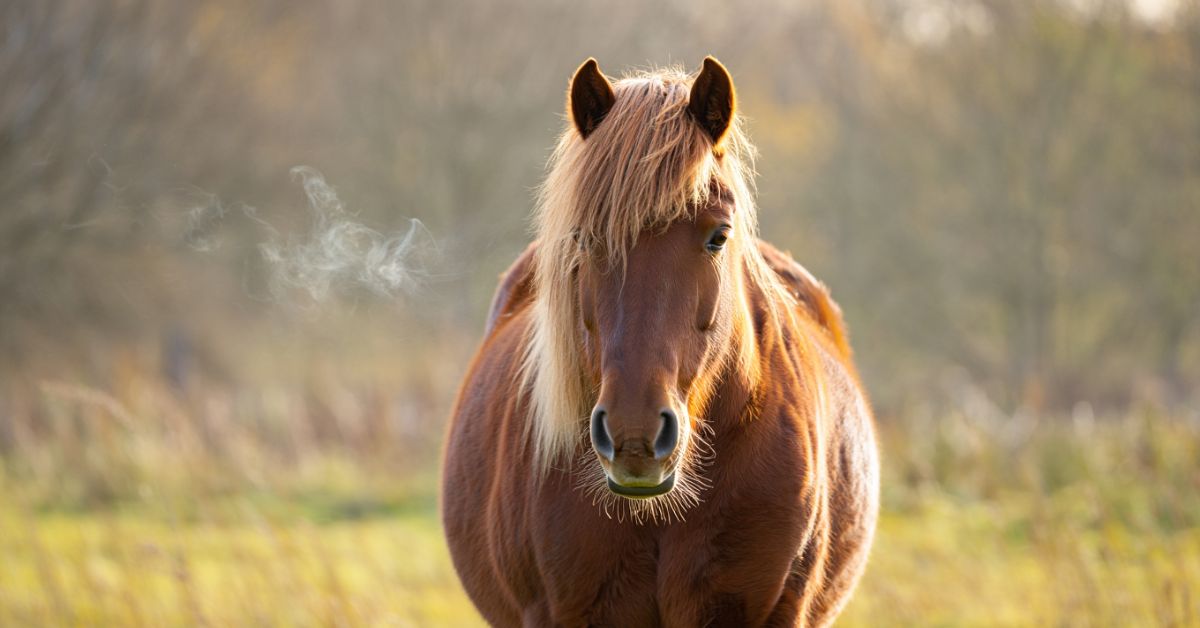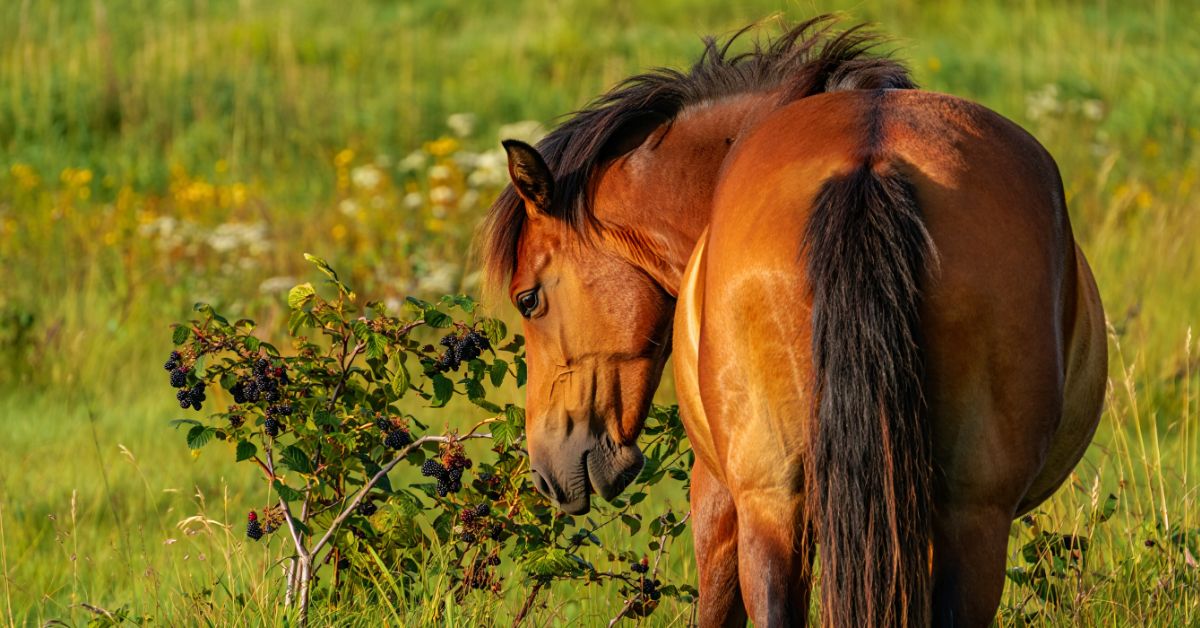
Can Horses Eat Blackberries? Your Complete Safety Guide
Can your horse enjoy those plump, juicy blackberries growing wild along your pasture fence? Yes, horses can eat blackberries safely – and they often love them!
But before you start hand-feeding these dark purple treats, there's crucial information every horse owner needs to know about portion control, sugar content, and potential digestive concerns.
In this comprehensive guide, you'll discover exactly how to safely incorporate blackberries into your horse's diet, the impressive nutritional benefits they offer, and the red flags to watch for. Whether you're looking for healthy horse snacks or wondering about those wild blackberry bushes in your pasture, we've got you covered.
The Short Answer: Are Blackberries Safe for Horses? ✅
Blackberries are generally safe for horses when fed in moderation. These berries pack impressive nutritional benefits without posing toxicity risks to your equine friend.
Here's what makes blackberries a smart choice for horse treats:
-
Non-toxic – Unlike some plants, blackberry fruits pose no poisoning risk
-
Nutrient-dense – Rich in vitamins, antioxidants, and fiber
-
Naturally appealing – Most horses genuinely enjoy their sweet-tart flavor
-
Readily available – Wild blackberries grow abundantly in many regions
However, "safe" doesn't mean unlimited. Like all fruits, blackberries contain natural sugars that require careful management in your horse's diet.
Nutritional Benefits: What Blackberries Offer Your Horse 💡
Blackberries deliver impressive nutritional value that can complement your horse's regular feed program.
Antioxidants in Blackberries for Equine Health
These dark berries are loaded with powerful antioxidants – particularly anthocyanins, which give them their deep purple color. For horses, antioxidants help:
-
Combat oxidative stress from exercise
-
Support immune system function
-
Promote healthy cellular aging
-
Aid in post-workout recovery
Essential Vitamins in Blackberries for Horses
Each handful provides:
-
Vitamin C – Supports immune health and collagen production
-
Vitamin K – Essential for proper blood clotting
-
Vitamin E – Promotes muscle function and neurological health
-
B-complex vitamins – Aid in energy metabolism
Fiber and Minerals
Blackberries offer dietary fiber that supports your horse's digestive system, along with minerals like manganese, copper, and magnesium. While these won't replace your horse's primary forage, they add beneficial variety.
The Sugar Question: Understanding Blackberry Sugar Content 🍬
Here's where responsible blackberry feeding for horses becomes crucial.
Fresh blackberries contain approximately 4-5 grams of sugar per 100 grams (about 2/3 cup). While this is relatively moderate compared to some fruits, it's still significant for horses with certain conditions.
When to Exercise Caution
Limit or avoid feeding fruit to horses with:
-
Insulin resistance – High sugar treats can trigger dangerous metabolic responses
-
Equine metabolic syndrome (EMS) – Even natural sugars must be strictly controlled
-
Laminitis history – Sugar spikes may contribute to recurrent episodes
-
Cushing's disease – These horses require carefully managed diets
For healthy horses, the natural sugar in blackberries poses minimal risk when fed appropriately.
How Many Blackberries Can a Horse Eat? 🫐
Moderation is key when introducing any new treat to your equine diet.
Recommended Serving Sizes
For an average-sized horse (1,000-1,200 lbs):
-
Start small: 5-10 blackberries initially
-
Standard serving: 1/4 to 1/2 cup (handful) per day
-
Maximum: No more than 1-2 cups even for healthy horses
For Ponies and Smaller Horses
Adjust proportionally. Feeding fruits to ponies requires extra caution due to their increased tendency toward metabolic issues. Stick to just a few berries as an occasional treat.
Frequency Matters
Daily fruit treats aren't necessary. Consider blackberries as:
-
Weekly special treats
-
Training rewards during sessions
-
Occasional bonding moments
Remember: Your horse's primary diet should consist of quality forage, not treats.
Can Horses Eat Wild Blackberries? 🌿
Absolutely! Wild blackberries growing in horse pastures are generally safe and often become a natural part of your horse's browsing behavior.
Benefits of Blackberry Bushes in Pastures
-
Provides natural enrichment and foraging opportunity
-
Offers shade in summer months
-
Creates natural windbreaks
-
Self-limiting – most horses won't overindulge
Important Considerations
Ensure the area hasn't been sprayed with herbicides or pesticides. Wild plants exposed to chemicals pose serious risks regardless of the plant species.
Watch the thorns! While horses typically navigate thorny bushes carefully, check your horse's muzzle and legs for scratches, especially if they're enthusiastic browsers.
Are Berry Bushes Toxic to Horses?
Blackberry bushes themselves are non-toxic. Both the berries and leaves are safe for equine consumption. However, always confirm plant identification – some toxic plants can grow alongside blackberries.
Blackberry Leaves for Horses: An Added Bonus 🍃
Interestingly, blackberry leaves offer benefits beyond the fruit itself.
Traditional Uses and Modern Understanding
Herbalists have long recognized blackberry leaf benefits for equine health, particularly for:
-
Digestive support – Mild astringent properties may help with minor diarrhea
-
Inflammation reduction – Contains tannins with anti-inflammatory effects
-
Hydration – Fresh leaves add moisture to the diet
Many horses naturally browse blackberry leaves when given access. This instinctive behavior suggests they may seek out these blackberry phytochemicals for their medicinal properties.
Potential Side Effects and Risks ⚠️
While generally safe, be aware of possible blackberry side effects in horses:
Digestive Upset
Too many blackberries can cause:
-
Loose droppings or mild diarrhea
-
Gas and mild colic symptoms
-
Equine gastrointestinal upset from sudden dietary changes
Always introduce new foods gradually and monitor your horse's manure consistency.
Choke Hazard Considerations
While less common with soft berries, rapid consumption of treats can lead to choke – an esophageal blockage. Prevent this by:
-
Offering berries slowly, a few at a time
-
Ensuring your horse isn't rushing to eat
-
Avoiding dried blackberries, which are more compact and sticky
Blackberries and Horse Colic
High sugar treats consumed in large quantities may disrupt the delicate bacterial balance in your horse's hindgut, potentially contributing to colic. This is another reason why moderation matters.
Alternative Forms: Dried Blackberries and Supplements 🛍️
Dried Blackberries for Horses
Dried berries are more concentrated – both in nutrients and sugars. If using dried blackberries:
-
Cut the serving size by at least half
-
Soak briefly in water to reduce choke risk
-
Use sparingly for horses with metabolic concerns
Blackberry in Horse Supplements
Some equine supplement manufacturers incorporate blackberry extracts for their antioxidant properties. These products typically standardize the beneficial compounds while controlling sugar content.
Smart Feeding Practices: Making Blackberries Work ✨
As Training Rewards
Fruit as training reward for horses can be highly effective. Blackberries work particularly well because:
-
They're small and quick to eat (no interruption to training flow)
-
High value treat that maintains motivation
-
Easy to carry in a pocket or treat pouch
Healthy Horse Snacks Rotation
Create variety in your safe horse treats list:
-
Monday: Carrots
-
Wednesday: Apples (small pieces)
-
Friday: Blackberries or other horse safe berries
-
Sunday: Watermelon rinds
This rotation prevents overreliance on any single treat and keeps things interesting.
Special Dietary Considerations
Feeding pregnant mares fruit: Generally safe in moderation, though always consult your veterinarian about any dietary changes during pregnancy.
Competition horses: Time fruit treats away from performance days to avoid any digestive surprises.
Do Horses Like Blackberries? 🤔
Most horses enthusiastically enjoy blackberries! Their natural sweetness and juicy texture appeal to equine taste preferences.
However, individual preferences vary. Some horses:
-
Devour them immediately with obvious delight
-
Approach cautiously before deciding they're delicious
-
Show little interest (yes, some horses aren't fruit fans!)
Never force a horse to eat treats they're refusing. Their instincts about food are generally reliable.
Comparing Berries in Equine Diet 🫐🍓
If you're exploring berries in equine diet, here's how blackberries compare:
|
Berry Type |
Safety |
Sugar Level |
Special Notes |
|
Blackberries |
✅ Safe |
Moderate |
High antioxidants |
|
Blueberries |
✅ Safe |
Moderate |
Excellent antioxidants |
|
Strawberries |
✅ Safe |
Moderate-High |
Remove green tops |
|
Raspberries |
✅ Safe |
Low-Moderate |
Very safe option |
All these horse safe berries can be rotated for variety while keeping sugar intake reasonable.
FAQ: Blackberries and Your Horse 💬
Can I feed my horse blackberries every day?
While not toxic, daily fruit treats aren't recommended. Offer blackberries 2-3 times per week at most. Your horse's diet should be primarily forage-based (hay and grass), with treats making up less than 10% of daily intake.
What if my horse has insulin resistance – are blackberries absolutely off-limits?
For horses with insulin resistance or metabolic syndrome, even natural fruit sugars can be problematic. Consult your veterinarian, but most recommend avoiding or strictly limiting all fruits, including blackberries. Focus on low-sugar alternatives like celery or carrots (also in moderation).
Can blackberries help with diarrhea in horses?
Blackberry leaves, not the fruit, have traditionally been used for their astringent properties to help with mild loose droppings. However, never attempt to treat diarrhea without veterinary guidance, as it can indicate serious health issues requiring professional intervention.
Are frozen blackberries safe for horses?
Yes! Frozen blackberries make excellent summer treats, especially for horses who enjoy the cooling effect. Thaw slightly to prevent any potential tooth sensitivity, and remember they retain the same sugar content as fresh berries.
What's the biggest mistake people make when feeding blackberries to horses?
Overfeeding is the most common error. Just because something is natural and safe doesn't mean unlimited quantities are appropriate. Many owners also forget to account for treats when calculating total daily caloric and sugar intake, which matters especially for easy keepers.
Conclusion: Sweet Treats, Smart Choices 🐴💚
Blackberries can absolutely be part of your horse's treat rotation when fed responsibly. These nutrient-dense berries offer antioxidants, vitamins, and fiber while providing an enjoyable bonding experience between you and your equine companion.
The golden rules:
-
Keep portions small (a handful or less)
-
Feed occasionally, not daily
-
Monitor for any digestive changes
-
Avoid completely for horses with metabolic conditions
-
Let them browse wild blackberries naturally if available
Remember, the best diet for your horse centers on quality forage, clean water, and appropriate concentrate feeds. Treats like blackberries are the cherry on top – or should we say, the blackberry on top! 😊
Ready to Explore More Horse Nutrition Topics? 🌟
What's your experience with feeding blackberries to your horse? Does your equine friend go crazy for them, or turn up their nose? Share your stories in the comments below! 👇
Want to become a savvier horse owner? Subscribe to our Dream Horse newsletter for expert-backed nutrition tips, training advice, and product recommendations delivered straight to your inbox. No spam, just pure equestrian excellence.
Explore our related guides:
-
The Ultimate Safe Treats List for Horses
-
Understanding Equine Metabolic Syndrome: A Complete Guide
-
Wild Plants in Your Pasture: Friend or Foe?
Keep riding, keep learning, and most importantly – keep your horse happy and healthy! 🐎✨
